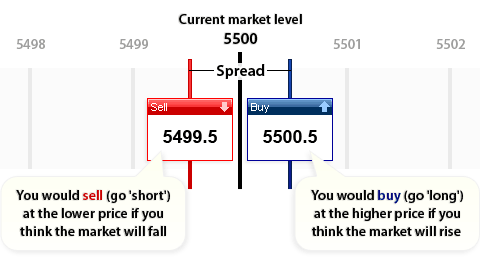The professional meets with Jane and asks her questions about her financial situation and goals. Her investment manager then executes the plan, buying and selling the securities in Jane’s portfolio. They might also guide her on how she should structure other aspects of her finances, such as her will.
But see also Chartered Financial Analyst § Efficacy of the CFA program re related research. Large asset managers are increasingly profiling their equity portfolio managers to trade their orders more effectively. While this strategy is less effective with small-cap trades, it has been effective for portfolios with large-cap companies. It is important to look at the evidence on the long-term returns to different assets, and to holding period returns (the returns that accrue on average over different lengths of investment).
It’s also important to understand their fees and compensation structure and ensure that their services align with your needs. Additionally, investment managers gain valuable experience through years of working in the financial industry, managing portfolios, and navigating the complexities of the financial markets. “Financial advisor” is a general term for various financial professionals and has no regulation or certification requirement. A wealth manager typically refers to a specific kind of financial advisor whose work focuses on topics that concern very wealthy individuals. A wealth manager usually has a significantly higher investment minimum than a regular financial advisor. Asset allocation involves spreading the investor’s money among different asset classes so that risks are reduced and opportunities are maximized.
- On the other hand, consider how the IRS had different rules relating to short-term or long-term capital gains taxes.
- Portfolio managers must be able to select, prioritize, and oversee programs & projects that adhere to the organization’s strategic objectives and delivery capacity.
- You can choose a passive management strategy by putting your money in index funds.
- Conventional assets under management of the global fund management industry increased by 10% in 2010, to $79.3 trillion.
- These services can include estate planning, trust services, family legacy planning, charitable giving planning and legal planning.
A wealth manager is a certified professional who provides financial advice and services to clients who need wealth management help. They are a licensed financial professional who typically provides a comprehensive range of services. These may include investment management, financial planning, insurance sales, tax advice and estate planning. There are many different investment strategies financial advisors use to help increase their clients’ wealth, from value investing (Warren Buffett’s favorite) to growth investing. Wealth managers tend to have slightly different approaches since they are working with such large accounts. They may give their clients access to a wider range of investments than regular financial advisors, like hedge funds and private equity offerings.
If you’re clear about your goals and confident in your ability to choose the products and strategies that will help you grow and protect your wealth, you may not need the help of a wealth manager. The idea of managing your own investments can feel daunting, but no matter how much money you have, there is a level of portfolio management right for you. If you need assistance with estate planning, specialized tax help or investing advice, it may be worth getting professional help now to protect and preserve your assets later. Passive portfolio management, also referred to as index fund management, aims to duplicate the return of a particular market index or benchmark. Managers buy the same stocks that are listed on the index, using the same weighting that they represent in the index.
Examining Client Service and Communication
Financial planners may offer similar services to wealth managers, but often they’ll let you purchase services on an “a la carte” basis. For example, if all you want is help figuring out how you’ll meet your retirement income needs, some financial planners will work with you to create a retirement income plan, and you pay solely for that service. Professional licensed portfolio managers work on behalf of clients, while individuals may choose to build and manage their own portfolios. In either case, the portfolio manager’s ultimate goal is to maximize the investments’ expected return within an appropriate level of risk exposure. For example, some investors are saving for retirement, building a portfolio that they hope will grow and can sustain their lifestyle when they stop working. Depending on the investor’s age, goals, risk tolerance, and other factors, this may call for a mix of securities (like stocks and bonds) that suit their financial plan and style.
Portfolio management requires the ability to weigh strengths and weaknesses, opportunities and threats across the full spectrum of investments. The choices involve trade-offs, from debt versus equity to domestic versus international, and growth versus safety. Bonds are an important asset class in financial markets that are often used in a diversified… An interest rate is what the lender charges for the use of its assets, such as cash, a vehicle, or property, shown as a percentage of the principal, the amount borrowed. Restricted stock units are an employer’s pledge to give an employee shares of the company’s stock (or the cash equivalent) at a future date or once a performance milestone is met.
Which of these is most important for your financial advisor to have?
This information is educational, and is not an offer to sell or a solicitation of an offer to buy any security. This information is not a recommendation to buy, hold, or sell an investment or financial product, or take any action. This information is neither individualized nor a research report, and must not serve as the basis for any investment decision.
Investment managers may be compensated through various fee structures, such as a percentage of assets under management, fixed fees, or performance-based fees. In most cases, a financial advisor is worth consulting regarding your financial decisions. Whether that advisor engages in full-service wealth management is up to the individual client and their own financial needs and goals.
Assessing Investment Philosophy and Strategy
For example, Fama and French (1993) have highlighted two important factors that characterize a company’s risk in addition to market risk. These factors are the book-to-market ratio and the https://1investing.in/ company’s size as measured by its market capitalization. Fama and French-, therefore proposed a three-factor model to describe portfolio normal returns (Fama–French three-factor model).
Private Wealth Managers
Passive portfolio management involves choosing a group of investments that track a broad stock market index. The goal is to mirror the returns of the market (or a specific portion of it) over time. Keep in mind that the job title “wealth manager” is also a generic term that can be used by anyone and does not indicate any specific credential. You can look up an advisor on the Financial Industry Regulatory Authority’s BrokerCheck tool. Last, should an investor turn to a portfolio manager to manage their investments, this will incur a management fee. The portfolio manager must often meet specific regulatory reporting requirements, and the manager may not have the same opinions or concerns about the market as you do.
There’s a wide variety of other investment options with varying levels of risk and reward potential. Investors buy and sell options, commodities, futures, precious metals, cryptocurrencies, and more. Someone on our team will connect you with a financial professional in our network holding the correct designation and expertise. Ask a question about your financial situation providing as much detail as possible. investment management meaning Our goal is to deliver the most understandable and comprehensive explanations of financial topics using simple writing complemented by helpful graphics and animation videos. Finance Strategists is a leading financial education organization that connects people with financial professionals, priding itself on providing accurate and reliable financial information to millions of readers each year.
What are the advantages of investment management?
They employ various risk management techniques, such as diversification and hedging, to minimize potential losses and protect clients’ investments. Index funds are a type of publicly-available investment that track specific market indexes, like the S&P 500. Index funds are a simple and low-cost way to invest, typically with diversification across a cross-section of the stock market. If you are comfortable managing your own finances, a wealth manager isn’t a must. Or, if you think you could use a little help but can’t find a manager you’re comfortable with or prefer not to involve another person in your finances, there are other options. The goal of wealth management is to help you achieve financial security and grow and protect your wealth.
Such action would add a pressure group to those (the regulators and the Board) overseeing management. Like relative value managers, contrarians look for inconsistencies in the market, but they’re also willing to bet against them. These strategies can be divided into three categories – bottom up, top down and macro. Asset managers typically charge for their services according to a pricing grid that’s usually expressed as an annual management fee. This is generally between 0.5% and 2% of the total amount invested with them, although some may even exceed 5%.
Investment decisions are based on a variety of factors, starting with your savings goals (retirement, education, a large purchase) and time frame. You’ll also answer questions to help the investment manager assess your risk tolerance, or your ability to endure swings in investment returns and stock market fluctuations. Market conditions, historical performance, tax efficiency and investment fees also inform the manager’s investing strategy. Investment management fees can be structured in several ways, including a flat fee, a fixed percentage of assets under management (AUM), performance-based fees, or a combination of these.
Investment managers may help advise clients on trades they should make, or make transactions on their client’s behalf. Investment managers can help to manage risk in an investment portfolio by diversifying investments and implementing strategies to reduce volatility. Investment managers have the expertise and knowledge to analyze financial markets, identify investment opportunities, and make informed decisions on behalf of their clients.
Different securities offer different risk and reward profiles to help achieve the investor’s goals. For example, stocks tend to offer more risk and greater potential reward than bonds. Investment management companies help their clients achieve their financial goals. Typically, their services encompass a combination of advice and various tasks related to managing an investment portfolio. Investment management is the practice of managing assets to achieve specified investment goals.






